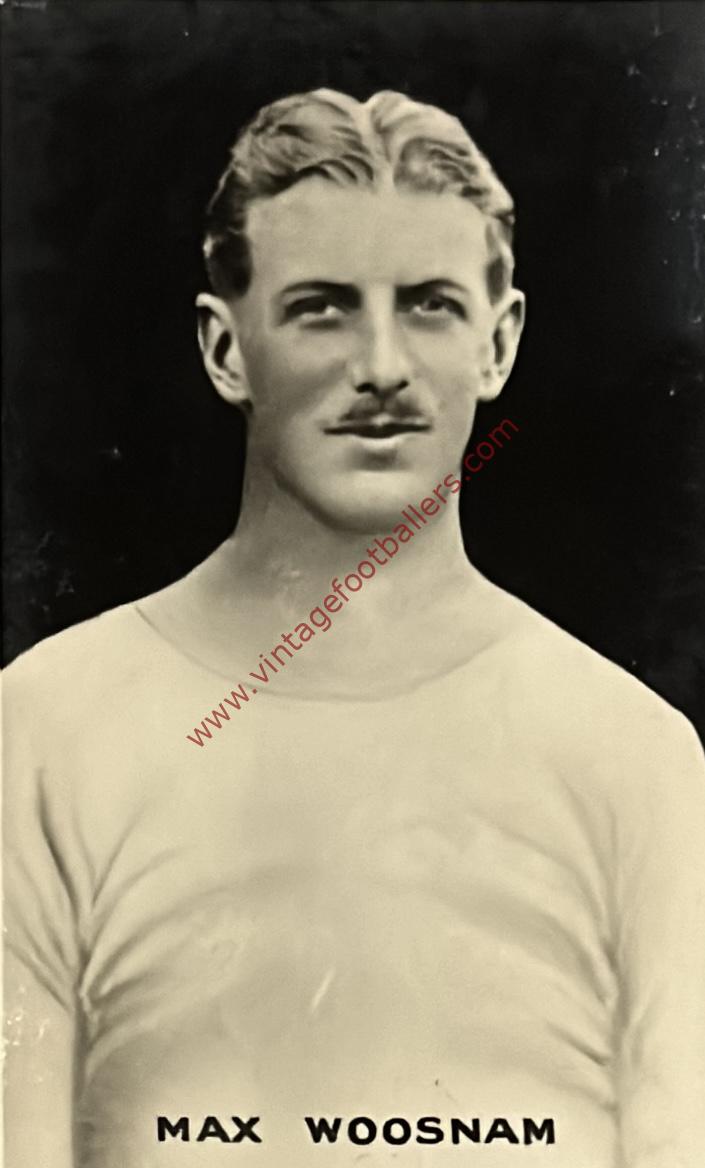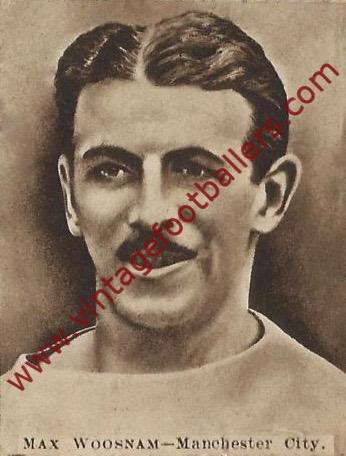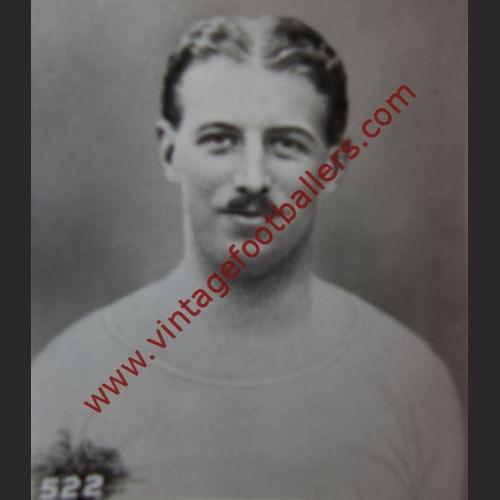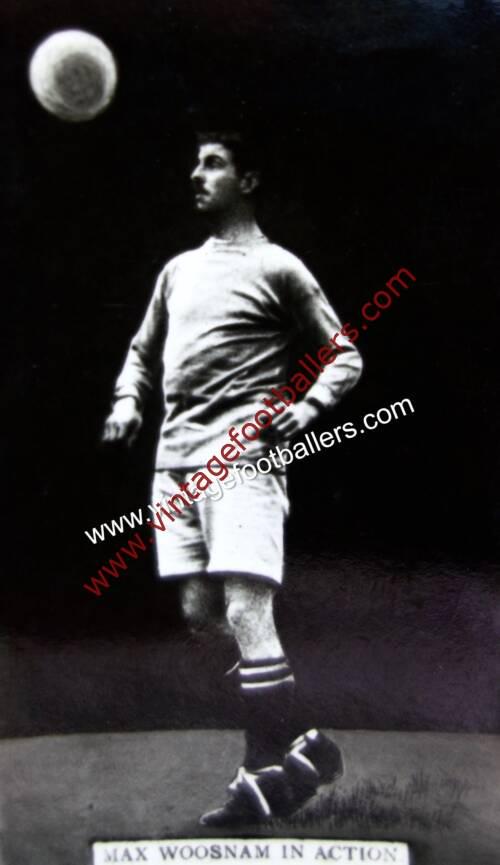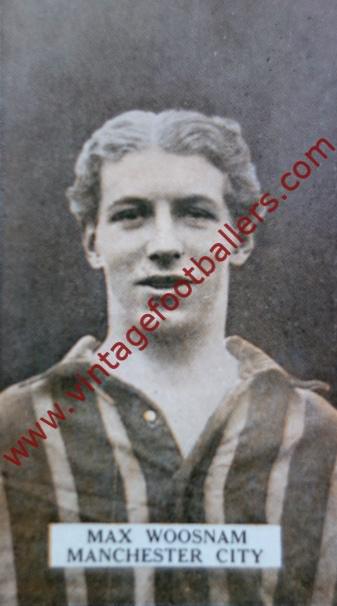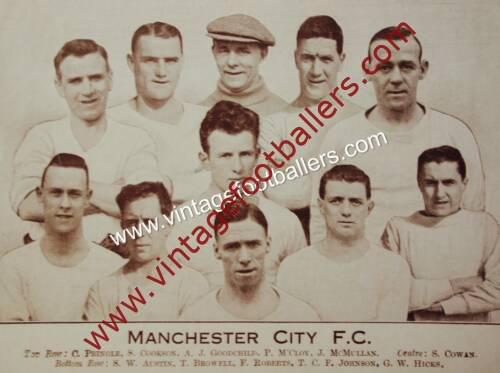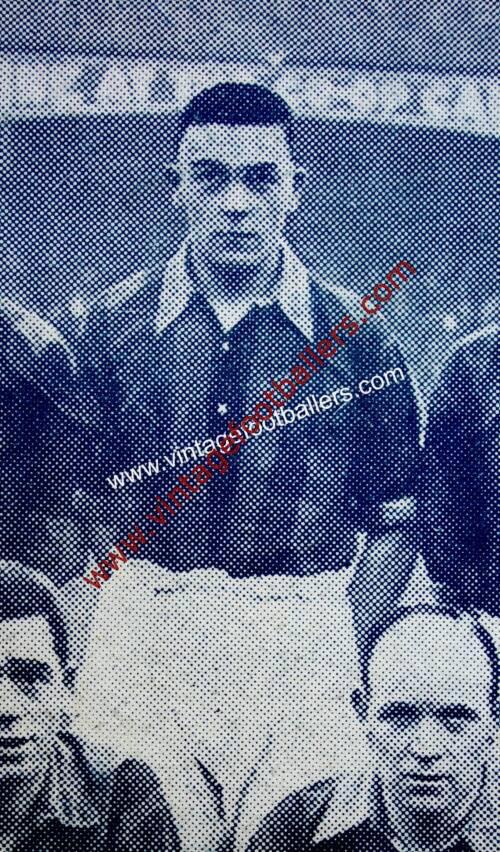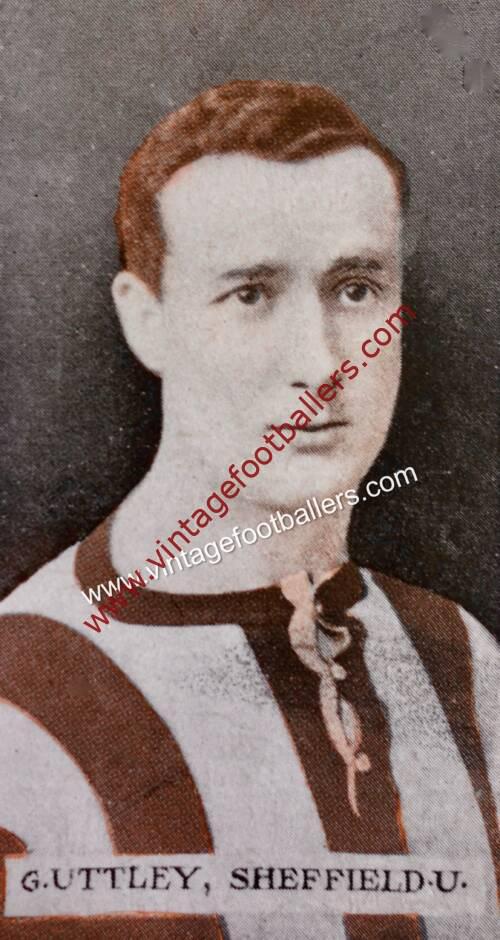Description
Max Woosnam was an English sportsman who is sometimes referred to as the ‘Greatest British Sportsman’ in recognition of his outstanding achievements. Among his achievements were winning an Olympic gold and silver in tennis at the 1920 Summer Olympics, winning the doubles at Wimbledon, captaining the British Davis Cup team, compiling a 147 break in Snooker, making a century at Lord’s Cricket Ground, captaining Manchester City finishing ultimately runners-up for the Football League Championship in 1920-21 and captaining the England national football team.
Max Woosnam was born into to a wealthy family in Liverpool. The son of Maxwell Woosnam, a clergyman who served as canon of Chester and Archdeacon of Macclesfield, Woosnam spent most of his childhood in Aberhafesp, Mid Wales. He attended Winchester College, where he captained the golf and cricket teams, and also represented the school at football and squash. As a schoolboy, he made scores of 144 and 33 not out for a Public Schools XI while playing against the MCC at Lord’s.
In 1911, Woosnam enrolled in Cambridge University. While here, he represented the university at football, cricket, lawn tennis, real tennis and golf (being a scratch golfer), becoming a quadruple Blue. After Cambridge, Woosnam played amateur football for the then highly successful amateur team The Corinthians from 1912, and for Chelsea, for whom he made his Football League debut in March 1914 at Derby County. He was chosen to travel on the Corinthians tour of Brazil in the summer of 1913. Managing the tour’s first goal, against Rio de Janeiro, he also scored against Paulistano and made quite a name for himself. In 1914, he again set sail with the Corinthians for Brazil…however this tour was cancelled when still at sea, the side discovered War had been declared at home.
In the First World War, he fought alongside Siegfried Sassoon on the western front and in the Gallipoli Campaign. Woosnam took part in a number of wartime sporting events, including football matches between a team of enlisted Corinthians players and Aldershot Command, and a Military vs Queen’s Club tennis match.
After the war, Woosnam continued his amateur sporting career, taking part in several sporting events. Woosnam was a finalist in the 1919 All England Plate tournament, a tennis competition held at the Wimbledon Championships, consisting of players who were defeated in the first or second rounds of the singles competition. Following a defeat of Woosnam while representing Cambridge University in a tennis match against Queen’s Club in April 1919, the Times remarked that “Woosnam is a player of many games, and he could excel at tennis if he could devote enough time to the game… …tennis is a mistress who must be constantly wooed.” However, Woosnam continued to divide his attention; he played football for Chelsea either side of the Queen’s Club match, captaining the team. His performance for Chelsea led to selection for a North versus South international trial match. Once the football season finished, Woosnam took part in several tennis tournaments. He won both the singles and doubles titles in the Cambridge University tournament, and entered Wimbledon for the first time. His tennis form in 1919 led The Times correspondent to describe his partnership with Noel Turnbull as a “doubles team of promise”. Woosnam declined the opportunity to become a professional sportsman, finding the idea ‘vulgar’.
Upon moving to Manchester, he signed for Manchester City on amateur terms. He made his debut on 1st January 1920 against Bradford City, a match that also saw the debut of Sam Cookson. Initially he played only home matches due to other commitments. However, when Manchester City, without Woosnam, suffered a shock 3-0 FA Cup defeat to Leicester City at the end of the month, some supporters blamed Woosnam’s employers, Crossley Brothers. As a result, the engineering firm ordered Woosnam not to miss another game, allowing him to play over 30 games a season in 1920-21, when City finished as League runners up, and 1921-22.
Playing at centre half, Woosnam eventually became Manchester City captain at the recommendation of his team-mates. This was highly unusual for an amateur among professionals. Eventually his success allowed him to play for England when in March 1922 he captained England to a 1-0 win over Wales at Anfield. Woosnam was also selected to captain the British football team at the Olympics, but refused, having already committed himself to the tennis team, but played twice for England in Amateur internationals. He continued other sporting endeavours outside of football however, winning doubles titles at Wimbledon and the Olympics, and captaining the Great Britain Davis Cup team. Woosnam had been working for chemical company ICI in Winnington, Northwich, and, while still being on Manchester City’s books, he played for Winnington Park and then for Northwich Victoria in the Cheshire County League. He made his debut for Northwich on Christmas Day, 1924, in a derby match against Witton Albion, resulting in a 3–0 victory for Northwich. He sometimes captained the side, before ending his football career in February 1926 due to injuries and other commitments. He played his last 3 games for Manchester City in January 1925, having scored 4 goals in 93 appearances for The Citizens.
Woosnam’s uncle, Hylton Philipson, was a cricketer and played five Test matches for England.

